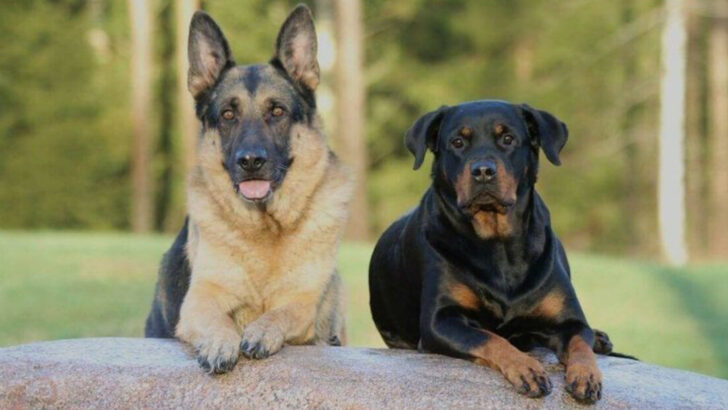Think Rottweilers and German Shepherds are the ultimate guard dogs? Think again. These popular breeds might have a reputation for protecting, but are they really all they’re cracked up to be?
While they’re often hailed as fierce protectors, there’s more to a great guard dog than just size and bark. In reality, many other breeds are quietly doing the job better.
So, before you rush out to get one of these “top-tier” guardians, consider what really makes a dog a good protector. Is it all about brute force, or does loyalty, intelligence, and instinct play a bigger role?
In this post, we’ll explore why Rottweilers and German Shepherds might not be the best fit for guarding your home and which breeds might actually do the job better. Prepare for some eye-opening revelations!
Health Issues
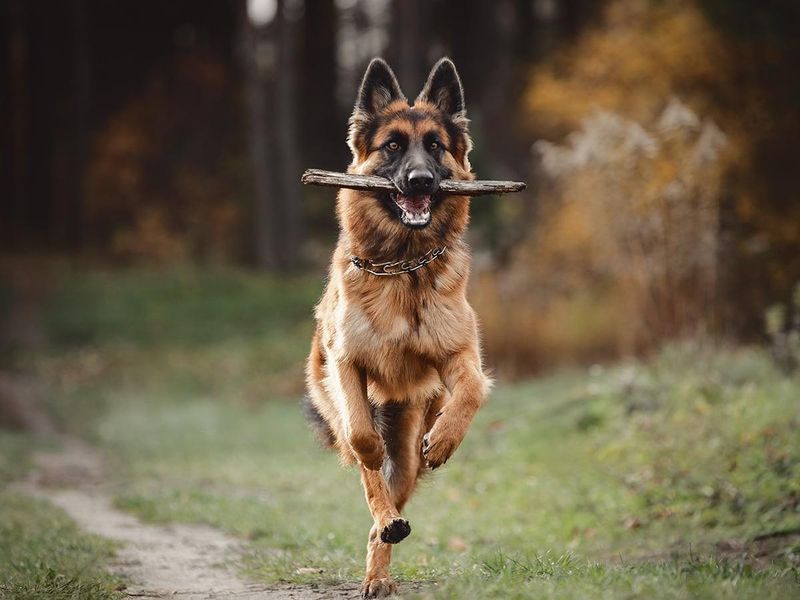
Rottweilers and German Shepherds often face health issues that can hinder their effectiveness as guard dogs. Both breeds are prone to hip dysplasia, a condition that affects their mobility and can lead to pain and discomfort.
This ailment not only impacts their guarding capabilities but also results in frequent vet visits and increased medical expenses. Furthermore, their susceptibility to genetic disorders means they might need special care, which could be burdensome.
Potential owners should consider these health concerns when looking for a reliable guard dog, as frequent health problems can significantly impact their quality of life.
High Maintenance
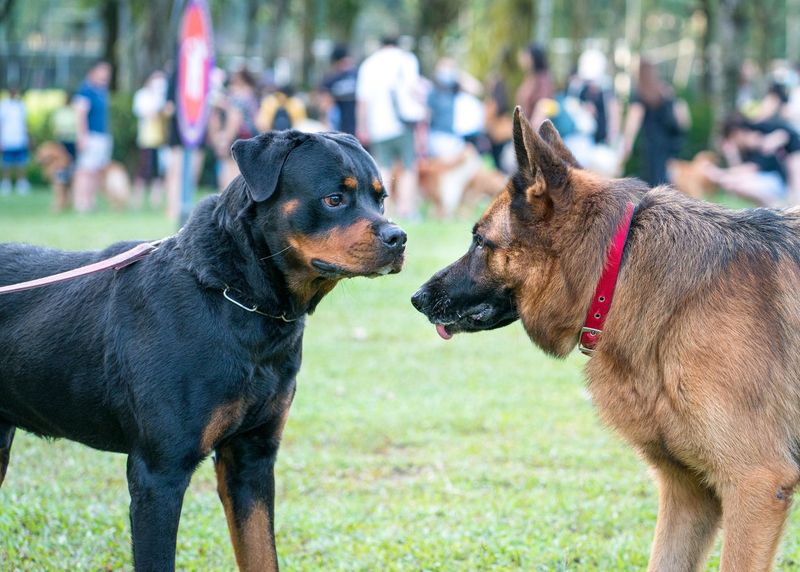
Both breeds are known for their double coats, which require regular grooming to keep them clean and healthy. The shedding can be overwhelming for some owners, necessitating daily brushing to manage loose hair.
Besides grooming, Rottweilers and German Shepherds need a consistent exercise routine to maintain their physical and mental well-being. Lack of exercise can lead to behavioral issues, further complicating their role as guard dogs.
Prospective owners must be ready for the high maintenance that comes with these breeds to ensure they remain happy and effective.
Aggression Issues
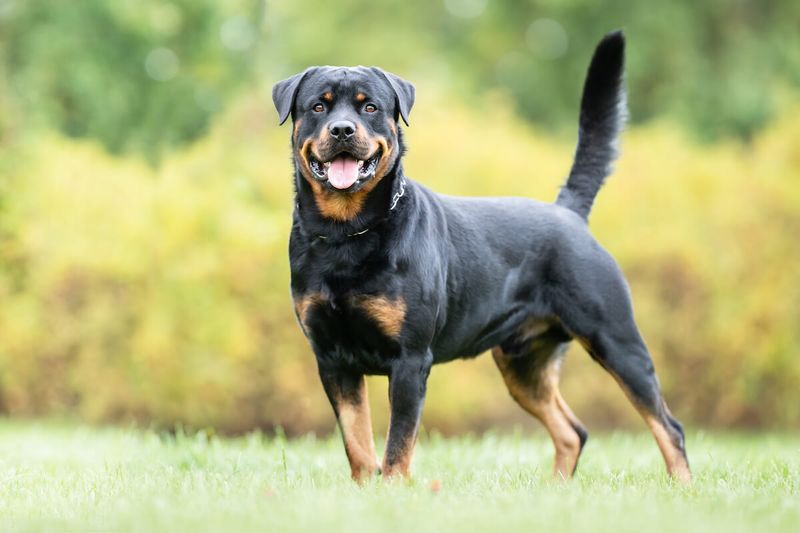
Aggression can be a double-edged sword. While it might seem beneficial for guarding, unmanaged aggression in Rottweilers and German Shepherds can pose risks to family and friends.
Without proper training and socialization, these dogs might become unpredictable, even hostile, towards unfamiliar people or pets. This unpredictability can lead to unwanted incidents, making it crucial for owners to invest time and resources in behavioral training.
The potential for aggression requires careful consideration, as it could undermine the very purpose of having a guard dog.
Training Challenges

Training a Rottweiler or German Shepherd can be demanding due to their strong-willed nature. These breeds require consistent and firm guidance to prevent them from becoming stubborn and unmanageable.
Inexperienced owners may find it challenging to establish authority, leading to inadequate training and obedience issues. Professional training classes can be beneficial but also add to the overall cost of ownership.
Therefore, potential owners need to be committed and patient, investing time and effort to ensure their dog is well-trained and disciplined.
Space Requirements
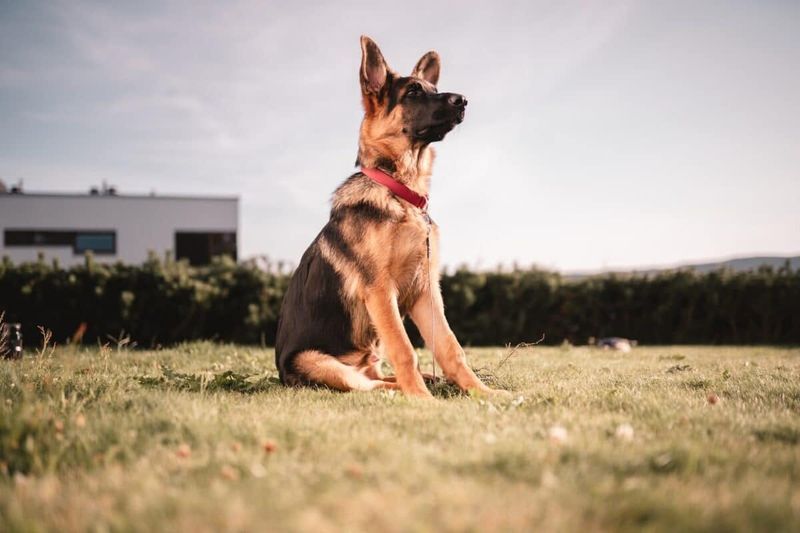
Rottweilers and German Shepherds are large, active dogs that thrive in spacious environments where they can move freely. Apartment living may not be suitable for them due to their size and energy levels.
Insufficient space can lead to restlessness and destructive behavior, as these breeds need room to burn off energy. Prospective owners living in smaller homes or urban settings might struggle to meet their spatial needs.
Considering the living environment is essential when choosing a guard dog, as inadequate space can severely impact their overall happiness and behavior.
Socialization Needs
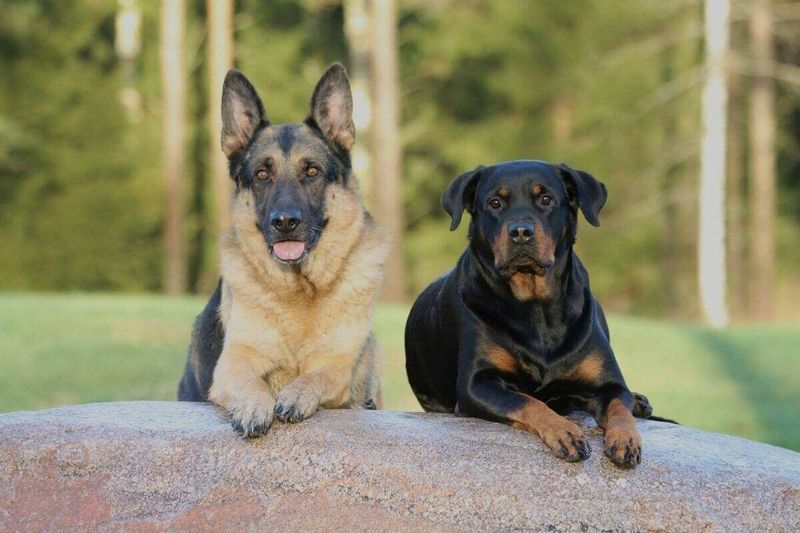
Socialization is crucial for both Rottweilers and German Shepherds to ensure they are well-adjusted and friendly. Without proper socialization, they may become overly protective or aggressive towards strangers.
This requires early and consistent exposure to different people, environments, and situations to develop balanced behavior. Owners must dedicate time to socialization activities to prevent unwanted guarding instincts from manifesting.
Failing to meet these needs can result in a dog that is fearful or aggressive, making it less effective and more of a liability as a guard dog.
The “Bacon Distractor” Effect
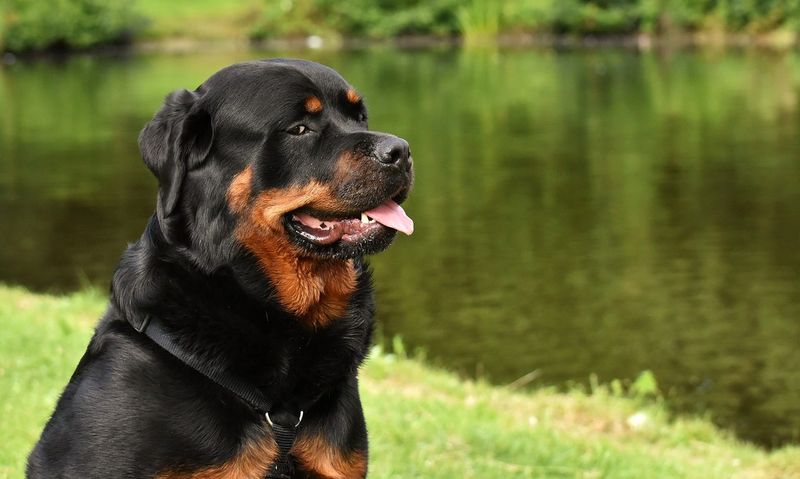
Imagine the scenario: a potential intruder enters your yard, but instead of barking furiously, your beloved Rottweiler is suddenly mesmerized by the delicious smell of bacon wafting from the neighbor’s barbecue.
This unexpected culinary distraction might just be enough to keep your guard dog otherwise occupied, allowing the intruder to slip by unnoticed. Food-loving canines could prioritize tasty treats over their guarding duties.
Though it may seem humorous, it’s a reality for some dog owners, who ought to consider their pet’s priorities when selecting a guard dog.
The Sudden Nap Syndrome
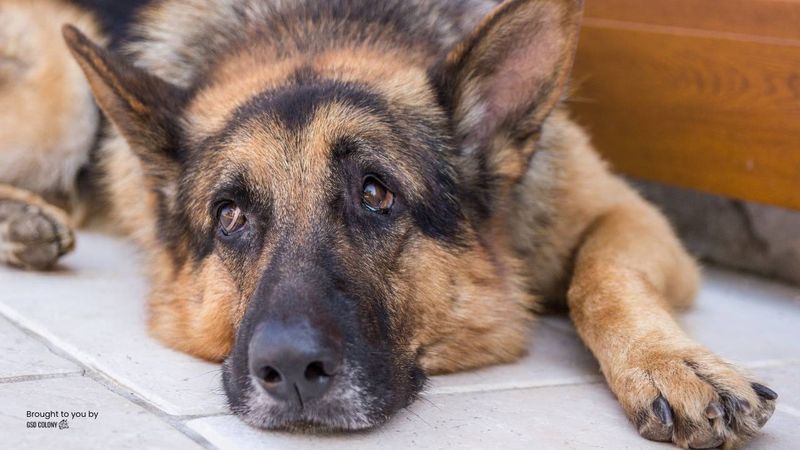
It’s a quiet afternoon, and the sun is warm. Next thing you know, your vigilant German Shepherd decides it’s nap time. Guard dog or not, even the most alert dogs have moments of downtime.
While it’s important for pets to rest, moments like these could potentially leave your home vulnerable when you least expect it.
Understanding your dog’s natural rhythms and ensuring they have good sleeping habits can help mitigate this risk. However, don’t be surprised by the occasional impromptu snooze!
The “Friendly Greeter” Misconception

Despite their fearsome reputations, many Rottweilers are surprisingly sociable. To the chagrin of some owners, these dogs might welcome strangers with wagging tails and friendly sniffs.
This behavior, while delightful in a family setting, can be less than ideal when strangers are unwanted guests. It’s essential to evaluate a pet’s temperament before assuming they will be vigilant protectors.
Training can help, but instinctual friendliness may still take over, rendering them more greeter than guard dog!
The “Fruitless Fetch” Phenomenon
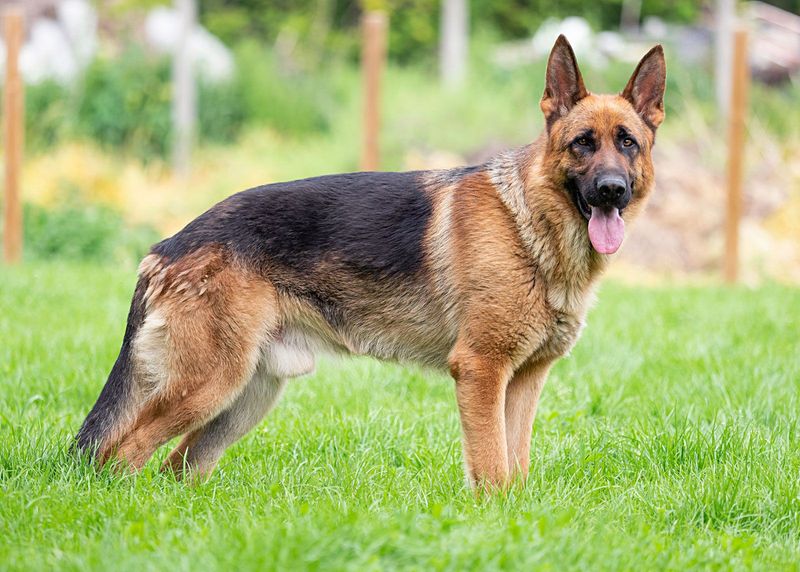
A well-thrown ball or frisbee can turn even the most serious guard dog into a playful pup. German Shepherds, known for their intelligence, might unexpectedly abandon their post for a quick game of fetch.
This playful nature could compromise their watchful status if playtime coincides with a security breach.
It’s a reminder that no matter how well-trained, the eternal lure of a game can override their guard instincts. Always balance playfulness with purpose when considering these breeds.
The “Fashionista” Dog Dilemma

Some Rottweilers rock their outfits with flair, turning heads wherever they go. While this is undeniably charming, it might detract from their role as a fierce guardian.
A fashion-conscious Rottweiler might prioritize presenting their best self over guarding duties, possibly leaving their post to flaunt a new ensemble.
Dog owners who adore dressing up their pets should ponder whether their furry friend’s focus aligns with their primary guard dog duties.
The “Television Enthusiast” Distraction
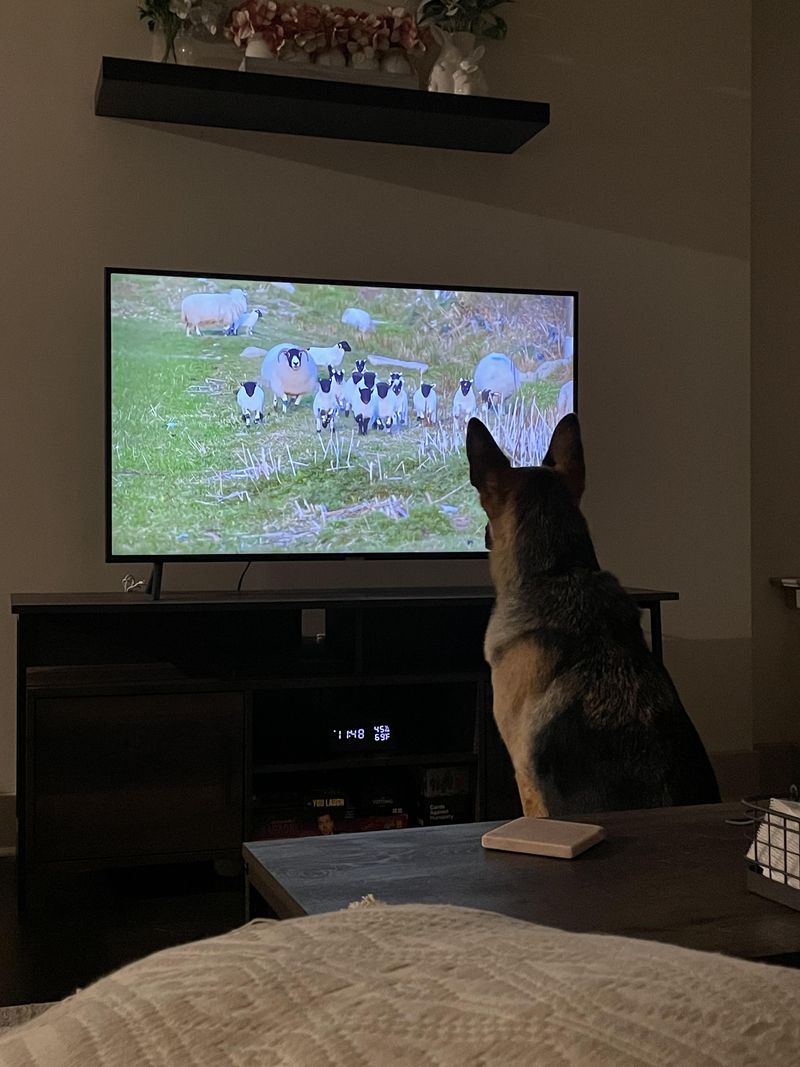
Today’s modern dogs are more tech-savvy than ever. Some German Shepherds enjoy watching television, especially shows featuring animals. This unexpected interest can divert their attention away from guarding responsibilities.
Engaging shows might captivate them, leaving your home unguarded while they’re glued to the screen.
Limiting screen time and ensuring active engagement with their environment can help redirect focus back to their protective role.
The “Mud Magnet” Scenario

Rottweilers love the outdoors, often reveling in muddy adventures. While this is great for their mental stimulation, it might not bode well for their guard duties.
A mud-covered dog could be more concerned with cleaning up than warding off intruders. This can be a messy distraction that pulls them away from their primary focus.
Frequent grooming and training can help manage this, but mud-loving tendencies might still prevail at inopportune times.
The “Garden Guru” Fascination
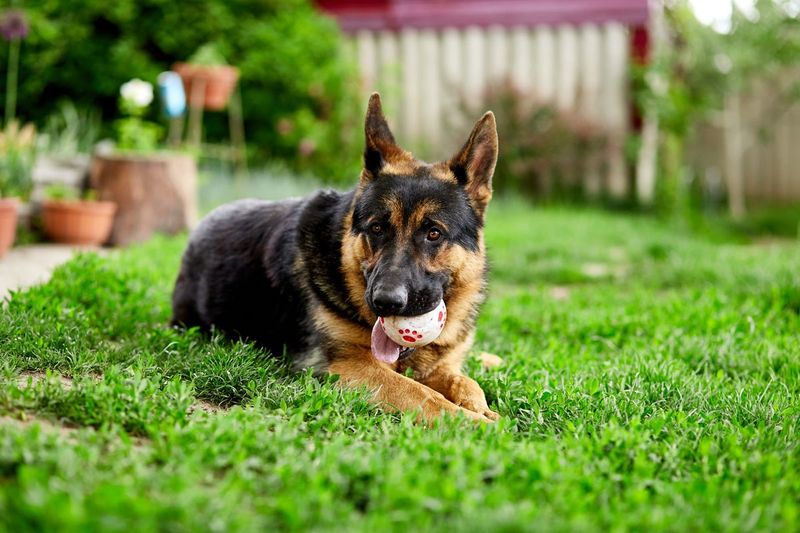
Who knew some German Shepherds have a green thumb? These dogs can be surprisingly interested in gardening, often helping owners dig (sometimes too enthusiastically) or just enjoying the serenity of the greenery.
While it’s endearing to see pets engage with nature, their love for horticulture might divert their guarding instincts.
Encouraging gardening habits can be fun, but it’s wise to ensure these activities don’t compromise their alertness to other, more pressing matters.
The “Squirrel Inspector” Distraction
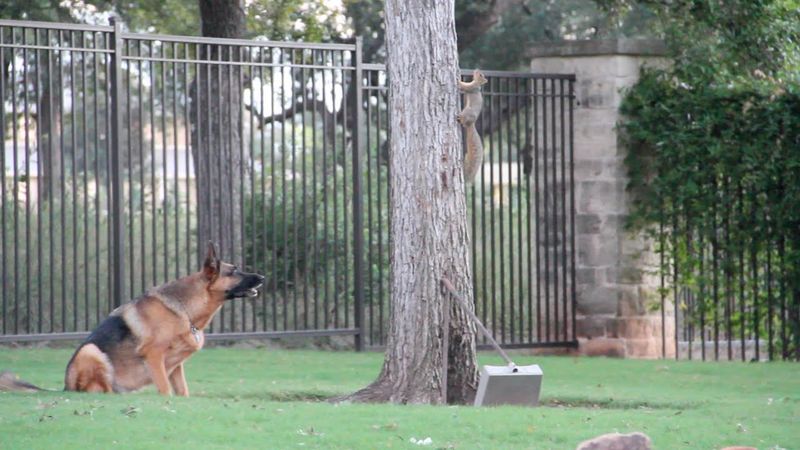
When it comes to guarding the home, focus is key. However, both Rottweilers and German Shepherds have been known to become completely sidetracked by the sight of a squirrel. This seemingly harmless creature becomes their main priority, diverting their attention from any potential intruders.
Imagine the scene: an intruder quietly approaches the house, only to find the household’s furry defenders entranced by a bushy-tailed visitor. It’s as if the world around them disappears, leaving them oblivious to other activities. This unexpected quirk can make them less than ideal for serious guard duties.
While their enthusiasm is endearing, it’s not always effective. Owners might find themselves frequently clapping or calling out to regain their dogs’ attention, especially in areas abundant with these furry distractions. Their unwavering commitment to investigating every squirrel in sight can be more amusing than protective, turning security into a lively spectacle.

